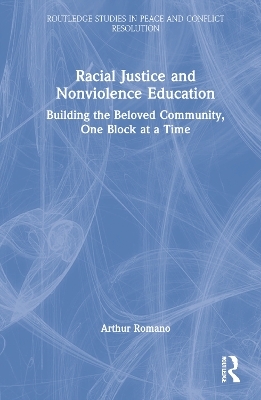
Racial Justice and Nonviolence Education
Building the Beloved Community, One Block at a Time
Seiten
2022
Routledge (Verlag)
978-1-032-15064-2 (ISBN)
Routledge (Verlag)
978-1-032-15064-2 (ISBN)
This book examines the role that community-based educators in violence-affected cities play in advancing Dr. Martin Luther King Jr.’s radical nonviolent vision for racial and social justice.
This work argues that nonviolence education can help communities build capacity to disrupt and transform cycles of violence by recognizing that people impacted by violence are effective educators and vital knowledge producers who develop unique insights into racial oppression and other forms of systemic harm. This book focuses on informal education that takes place beyond school walls, a type of education that too often remains invisible and undervalued in both civil society and scholarly research. It draws on thousands of hours of work with the Connecticut Center for Nonviolence (CTCN), a grassroots organization that presents an ideal case study of the implementation of King’s core principles of nonviolence in 21st-century urban communities. Stories of educators’ life-changing educational encounters, their successes and failures, and their understanding of the six principles of Kingian nonviolence animate the text. Each chapter delves into one of the six principles by introducing the reader to the lives of these educators, providing a rich analysis of how educators teach each principle, and sharing academic resources for thinking more deeply about each principle. Against the backdrop of today’s educational system, in which reductive and caricatured treatments of King are often presented within the formal classroom, CTCN’s work outside of the classroom takes a fundamentally different approach, connecting King’s thinking around nonviolence principles to working for racial justice in cities deeply impacted by violence.
This book will be of much interest to students of conflict resolution, race studies, politics and education studies, as well as to practitioners in the field.
This work argues that nonviolence education can help communities build capacity to disrupt and transform cycles of violence by recognizing that people impacted by violence are effective educators and vital knowledge producers who develop unique insights into racial oppression and other forms of systemic harm. This book focuses on informal education that takes place beyond school walls, a type of education that too often remains invisible and undervalued in both civil society and scholarly research. It draws on thousands of hours of work with the Connecticut Center for Nonviolence (CTCN), a grassroots organization that presents an ideal case study of the implementation of King’s core principles of nonviolence in 21st-century urban communities. Stories of educators’ life-changing educational encounters, their successes and failures, and their understanding of the six principles of Kingian nonviolence animate the text. Each chapter delves into one of the six principles by introducing the reader to the lives of these educators, providing a rich analysis of how educators teach each principle, and sharing academic resources for thinking more deeply about each principle. Against the backdrop of today’s educational system, in which reductive and caricatured treatments of King are often presented within the formal classroom, CTCN’s work outside of the classroom takes a fundamentally different approach, connecting King’s thinking around nonviolence principles to working for racial justice in cities deeply impacted by violence.
This book will be of much interest to students of conflict resolution, race studies, politics and education studies, as well as to practitioners in the field.
Arthur Romano is Assistant Professor at the Jimmy and Rosalynn Carter School for Peace and Conflict Resolution at George Mason University, USA.
Introduction 1. Nonviolence is a Way of Life for Courageous People 2. The Beloved Community is the Framework for the Future 3. Attack forces of evil, not persons doing evil 4. Accept Suffering without Retaliation for the Sake of the Cause to Achieve the Goal 5. Avoid internal violence of the spirit as well as external physical violence. Conclusion: The Beloved Community is a Learning Community
| Erscheinungsdatum | 27.06.2022 |
|---|---|
| Reihe/Serie | Routledge Studies in Peace and Conflict Resolution |
| Zusatzinfo | 4 Line drawings, black and white; 16 Halftones, black and white; 20 Illustrations, black and white |
| Verlagsort | London |
| Sprache | englisch |
| Maße | 156 x 234 mm |
| Gewicht | 453 g |
| Themenwelt | Sozialwissenschaften ► Ethnologie |
| Sozialwissenschaften ► Pädagogik ► Allgemeines / Lexika | |
| Sozialwissenschaften ► Pädagogik ► Bildungstheorie | |
| Sozialwissenschaften ► Politik / Verwaltung ► Europäische / Internationale Politik | |
| Sozialwissenschaften ► Soziologie | |
| ISBN-10 | 1-032-15064-5 / 1032150645 |
| ISBN-13 | 978-1-032-15064-2 / 9781032150642 |
| Zustand | Neuware |
| Haben Sie eine Frage zum Produkt? |
Mehr entdecken
aus dem Bereich
aus dem Bereich
Eine neues Menschsein für die Welt von morgen
Buch | Softcover (2023)
Vahlen (Verlag)
CHF 34,85
Einführung in die Theorie transformatorischer Bildungsprozesse
Buch | Softcover (2023)
Kohlhammer (Verlag)
CHF 47,60


